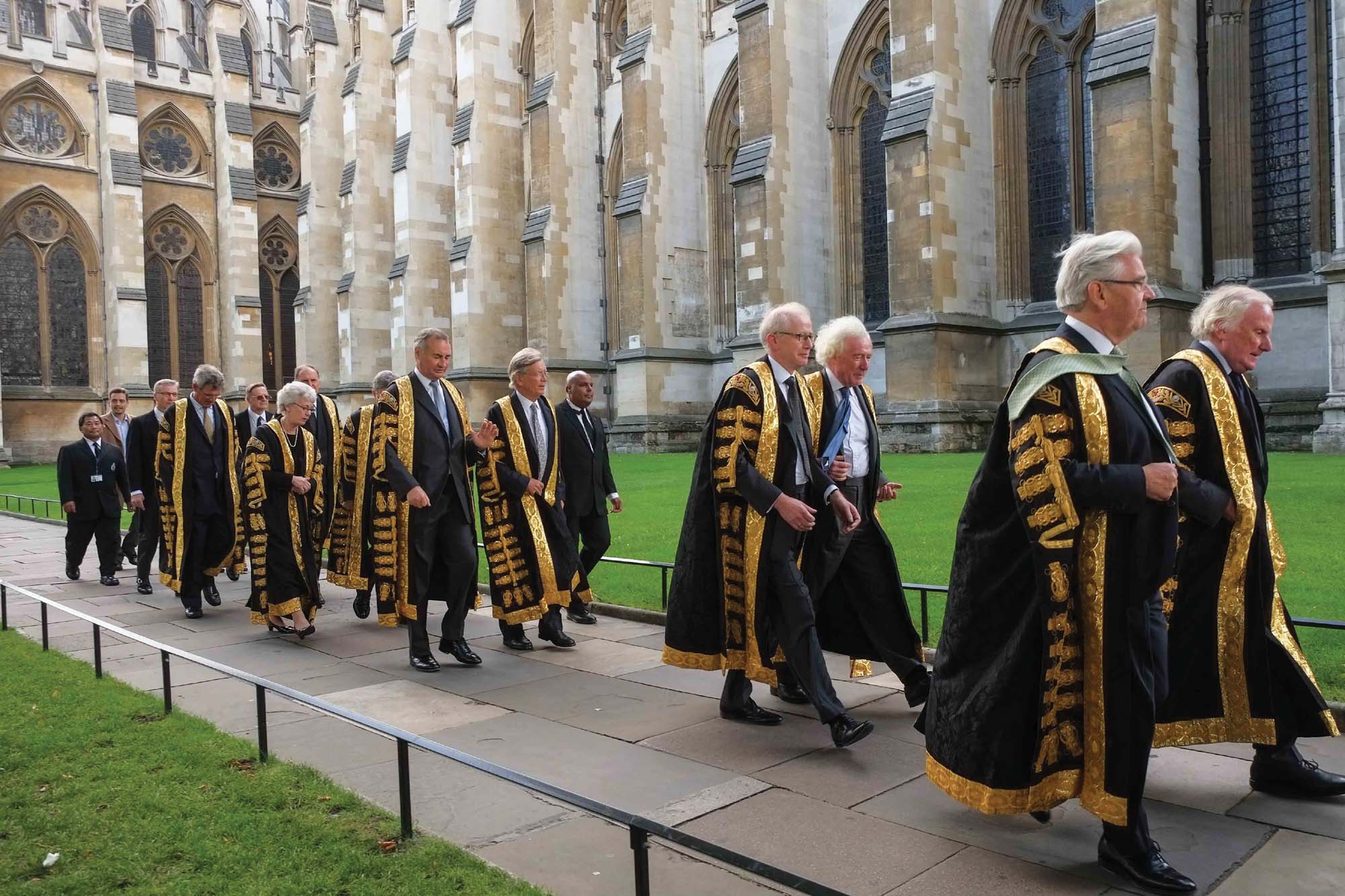
This article is a preview from the Summer 2018 edition of New Humanist
What does Brexit mean for human rights? For many who voted Leave, the EU is inexorably associated with politically correct human rights laws inimical to British traditions and British values. Brexit, therefore, means a return to a better age, where foreign criminals can be deported and businesses are free from burdensome regulation. Conversely, in sentiment at least, Remainers have tended to be more favourably inclined to notions of human rights, and their codification in law. Both sides certainly share an assumption that “human rights”, and in particular the Human Rights Act, are likely to be significantly affected by Brexit.
This is hardly surprising, given that much of the anti-EU rhetoric of recent decades has focused on the Human Rights Act, which has assumed a central place in Eurosceptic demonology. However, much of the public debate on human rights tends to be driven by emotion and tabloid reporting, with many different rights being conflated in the discussion – for example, the rights of immigrants and asylum seekers, employment and equality protections, and privacy. Beyond a general sense that “human rights” and “Europe” are intertwined, and a hope among some supporters of Brexit that we might acquire a “British” Bill of Rights, which will assert and protect a distinctively British set of rights and freedoms that are different from European ones, the technicalities are not widely understood. So what exactly is the link between Brexit and human rights, and how can we expect our fundamental rights and freedoms to look after 2019?
At the heart of this debate are two key documents: the European Convention on Human Rights and the EU Charter of Fundamental Rights. All EU member states are required to be signatories to both. In theory Britain’s departure could result in it ceasing to be a signatory – but as the government is now finding out, the practical politics might be rather more complicated.
Of these two documents, the Convention has the longest pedigree: it was created in 1950, in the aftermath of the Second World War, by the newly formed Council of Europe. British influence was apparent from the outset: the Convention was enthusiastically supported by Winston Churchill, and the drafting was guided by David Maxwell Fyfe, a leading British lawyer who had been a prosecutor at the Nuremberg trials. The Convention established the European Court of Human Rights, so that any person who felt his or her rights to be violated could bring a case. Where violations are found, the court can award compensation, and state signatories are obliged to comply with judgements. Key rights protected by the Convention are the right to life, freedom from inhuman and degrading treatment, freedom from slavery, the right to a fair trial, the right to privacy, the right to freedom of thought, conscience and religion, freedom from discrimination, and freedoms of expression, association and family life: all rights which, in the abstract at least, most people would support. In 1998, the Labour government implemented the Convention into British domestic law, in the form of the Human Rights Act.
The EU Charter of Fundamental Rights is a much more recent innovation: it was incorporated into EU law by the Lisbon Treaty of 2007, and took effect in December 2009. The Charter applies to the EU institutions and the member states when they are implementing, derogating from, or acting within the scope of EU law. The Charter sets out a detailed catalogue of political, social and economic rights that EU institutions must respect when exercising their powers. These include all the rights set out in the Convention, but the Charter adds some new ones: for example, a guarantee of human dignity; a right to physical and mental integrity (including rights around personal data); a right to conscientious objection; a right to marry, extended to same-sex couples; a right to asylum; and a range of social and economic rights, e.g. to fair working conditions, access to healthcare and housing. These are significant additions, although the economic and social “rights” set out in the Charter are not accorded equal status with the civil and political ones. The Charter distinguishes between “rights”, which are fully effective, and “principles”, which are not, and in fact most of the economic and social provisions are “principles”. Moreover EU member states (including, until the date of Brexit, the UK) need only respect Charter rights when incorporating some part of EU law into national law.
* * *
So what happens after Brexit? So far as the Charter is concerned, the government’s intention is that it will be scrapped, and the EU Withdrawal Bill provides for this. If this happens, the additional rights protected by the Charter will be lost. But this is subject to two caveats. Firstly, the fate of the Charter will be for parliament to decide. On 24 April the House of Lords voted 316-245 in favour of retaining the Charter after Brexit. This will likely be overturned by the Commons, but only if the balance of parliamentary forces remains the same as now: for Labour, Keir Starmer says keeping the Charter will be one of his six tests as to whether to support the final Brexit deal. Secondly, even if the government has its way, after Brexit there still will be some residual traces of Charter- inspired law lurking within UK law: the Great Repeal Bill will convert all EU law into UK law on the day of withdrawal, and some of that EU law has already been made in accordance with the Charter. Those residual traces could only be eliminated subsequently by the explicit vote of parliament, and they might prove more popular than the government imagines. Tim Farron, the former Lib Dem leader, says the Charter is the “cornerstone of what makes Britain what we are” – a view easily mocked, since the Charter is a very recent innovation – but without European interference as a justification, removal of rights might not be straightforward. That said, the scrapping of the Charter will undoubtedly significantly diminish the substantive rights available to British citizens in the future.
So far as the Convention and the Human Rights Act are concerned, years of demonisation by tabloids and some politicians have led many voters to assume that Brexit would include a departure from the Convention and the assertion of a distinctively “British” approach to rights, unpolluted by European nostrums. Prior to Brexit, the Conservatives’ position – set out in 2014 at a time of tabloid hysteria over votes for prisoners and the deportation of foreign criminals – was to withdraw Britain from the Convention unless parliament was given the right to veto judgements from the European Court of Human Rights, a proposition self-evidently incompatible with continued membership of the Convention. At the same time, the Tories promised to replace the Convention and Human Rights Act with a “British bill of rights and responsibilities”. These proposals – accurately described by the former Conservative attorney general Dominic Grieve as “almost puerile, and unworkable” – were enunciated at a time of coalition government and in the knowledge that the Liberal Democrats would veto them. The intention was simply to play to the Eurosceptic gallery, with David Cameron assuming that his party would never win an overall majority and would therefore never have to implement them.
* * *
Once the Tories won an overall majority in 2015, the proposals floundered on two counts. One was political reality: quite apart from its implications for Britain’s international standing, withdrawal from the Convention would place Britain in breach of its legal obligations in the Good Friday agreement, which established peace in Northern Ireland. The second problem was that beyond a few vague references to the Magna Carta, the government found it difficult, if not impossible, to articulate what a British Bill of Rights might actually look like.
The Convention contains the sorts of baseline human rights – the right to life, the right not to suffer inhuman and degrading treatment – which are difficult to argue against in principle, even if particular interpretations of these rights might be contested. In articulating a British Bill of Rights, the Tories found it impossible to differentiate meaningfully from the Convention – perhaps unsurprisingly, given that the Convention was part-authored by the British and supported by that exemplar of Britishness, Winston Churchill. At one stage the only uniquely “British” right that ministers could identify was trial by jury – which successive governments have hardly been assiduous in protecting. Although the formal policy remains, in practice the commitment to a British Bill of Rights seems to have been quietly discarded. Ironically, given decades of tabloid agitation, as things stand, in the aftermath of Brexit the much-reviled Human Rights Act will not only remain on the statute book but become more important than ever in setting a baseline for fundamental human rights within our legal system.
Brexit, then, will not necessarily give rise to a radically new dispensation: Britain will probably lose the Charter, but its impact on our law was embryonic, and much of the Convention jurisprudence that has become integral to our law will be retained. This outcome, and the difficulties the Tories have encountered in identifying precisely what it is about the Convention that they really want to discard, may reflect a deeper reality about British society: on some issues, although not all, it is now more liberal, and more accepting of human rights, than it often believes itself to be. As David Goodhart notes in his book The Road to Somewhere, on certain issues – like racism, gender relations and attitudes to homosexuality – British society over the last 40 years has undergone a Great Liberalisation. There have been gentler declines in support for the death penalty, which is now supported by slightly less than half the population, and in support for draconian punishment of criminals. These changes are most marked among the young and more highly educated, but the liberalisation in these areas has been a general one affecting the whole population. For all the tabloid furore, human rights concepts may be more popular than sometimes thought.
Of course, as Brexit itself confirms, the Great Liberalisation is only half the story. On some issues, particularly immigration, public opinion has become less liberal over time, although the immigration issue is a complex story with less “racial” views on who can be a British citizen coinciding with more hostility to immigrants who appear not to integrate. Thus, “good” immigrants like the Windrush generation win public support, but those who are perceived to have failed to integrate attract opprobrium. This perhaps also explains why the deportation of foreign criminals became such a flashpoint. Nonetheless, trying to infer a set of “British” values which can inform a British bill of rights is impossibly difficult – you can’t have a set of “British” human rights which apply to the indigenous population and to “good” immigrants, but from which “bad “ immigrants are excluded.
The whole point about human rights is that they apply to everyone. In that sense, human rights have entered into British popular thinking and the popular lexicon whether we like it or not, and even Brexit cannot change that fundamental reality.

